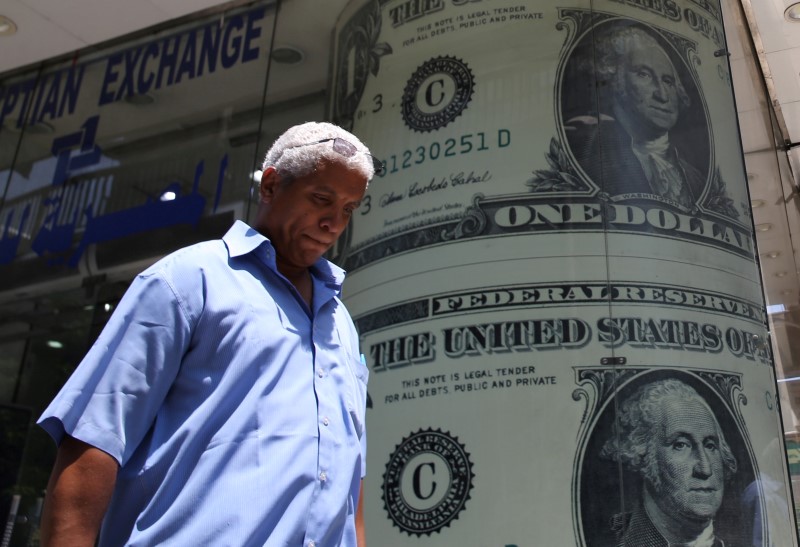EUR/USD likely to find a peak near 1.25: UBS
* Dollar down vs yen, Swiss franc and euro
* Market remains nervous of U.S. coronavirus outbreak
By Hideyuki Sano
TOKYO, March 11 (Reuters) - The dollar resumed its descent
against the safe-haven Japanese yen and Swiss franc on Wednesday
after a rebound the previous day as nervous sentiment over the
coronavirus epidemic persisted.
The moves mirrored falls in U.S. equity futures and U.S.
bond yields in early trade in Asia on Wednesday, with most
investors still on the sidelines even after risk assets made
some recovery on Tuesday on hopes governments will take measures
to ease the economic pain from the epidemic.
Against the yen, the dollar lost 0.6% to 104.98 yen JPY= ,
down almost a full yen from Tuesday's high.
The Swiss franc also gained 0.25% to 0.9369 franc per dollar
CHF= while the euro stood at $1.1304 EUR= , up 0.21% so far
in Asia.
"Liquidity is so thin at the moment. There are very few
orders in the market, most of which appear to come from
algorithm players," said Yukio Ishizuki, senior strategist at
Daiwa Securities.
"All we can say is trade will remain volatile for the time
being."
The dollar had jumped back on Tuesday as investors hoped
global monetary policymakers will launch further stimulus plans
aimed at bolstering economies hit by trade and travel
disruptions.
U.S. President Donald Trump said on Tuesday he will ask
Congress for a payroll tax cut and other "very major" stimulus
moves, although the details remain unclear. "It is too early to say the market sentiment has turned
positive. Yesterday's rebound in the dollar and in risk assets
is a type of a rebound you often see in a downtrend," said
Shinji Ishimaru, senior currency analyst at MUFG Bank.
"In addition to economic measures, the focus will be on how
much the U.S. can contain the infections to keep the economy
going. That is a very big unknown," he said.
The U.S. Centers for Disease Control and Prevention (CDC)
reported on Tuesday 696 cases of coronavirus, an increase of 224
from its previous count, and said the number of deaths had risen
by six to 25. Financial markets are also expecting the U.S. Federal
Reserve to cut interest rates by at least 0.5 percentage point
at its policy review next week, in addition to its emergency
rate reduction earlier this month.
That will essentially diminish the dollar's yield advantage
over other major currencies, which has been a main driver of the
dollar's strength in the past few years.
